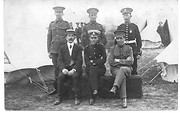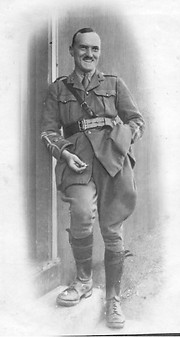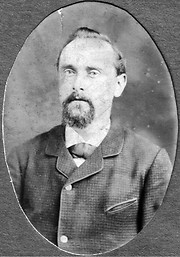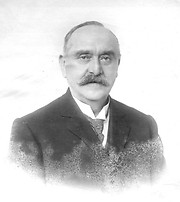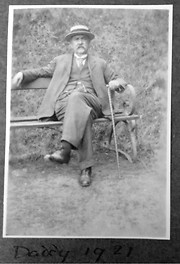 Hartlepool Sports & Leisure
Hartlepool Sports & Leisure
- Cinemas, Theatres & Dance Halls
- Musicians & Bands
- At the Seaside
- Parks & Gardens
- Caravans & Camping
- Sport
 Hartlepool Transport
Hartlepool Transport
- Airfields & Aircraft
- Railways
- Buses & Commercial Vehicles
- Cars & Motorbikes
- The Ferry
- Horse drawn vehicles
 A Potted History Of Hartlepool
A Potted History Of Hartlepool
- Unidentified images
- Sources of information
- Archaeology & Ancient History
- Local Government
- Printed Notices & Papers
- Aerial Photographs
- Events, Visitors & VIPs
 Hartlepool Trade & Industry
Hartlepool Trade & Industry
- Trade Fairs
- Local businesses
- Iron & Steel
- Shops & Shopping
- Fishing industry
- Farming & Rural Landscape
- Pubs, Clubs & Hotels
 Hartlepool Health & Education
Hartlepool Health & Education
- Schools & Colleges
- Hospitals & Workhouses
- Public Health & Utilities
- Ambulance Service
- Police Services
- Fire Services
 Hartlepool People
Hartlepool People
 Hartlepool Places
Hartlepool Places
 Hartlepool at War
Hartlepool at War
 Hartlepool Ships & Shipping
Hartlepool Ships & Shipping

Casper Family Album
Details about Casper Family Album
A selection of family photographs and some recollections of Kathleen Dorothea Casper (1902-1994), kindly shared with us by Mark Harald Stone (Kathleen’s grandson), with additional information compiled from public records by project volunteers.
In the latter half of the nineteenth century, Danish brothers Emil, Hans and Harald Casper established a number of successful shipping businesses in the North-East of England.
Harald W. Casper and Axel Casper were the first managers trading under E.A. Casper & Co., with offices at Commercial Terrace, West Hartlepool.
Hans and Harald later went on to found shipbroking and agency businesses Casper, Edgar & Co., in Hartlepool, and H. Casper & Co. in Middlesbrough.
The eldest of the three, Emil Andreas Casper, was born at Frederikshavn on 30th November 1839 to parents Carl Christian and Ane Christiana (nee Hansen) Casper. He was listed in the 1861 census as living as a boarder at Hartlepool and working as a shipbroker’s clerk. He married Anna (also born in Denmark) between 1861 and 1869.
By 1871 the couple were living at Archer Street, Stranton with their baby daughter and Emil was listed as a shipbroker. The couple were later living at Alexandra House, Avenue Road with their three sons and Emil was listed as a grain & timber merchant.
Emil died aged 40, in Germany, on 14th January 1880.
Son Axel was born in 1871 at West Hartlepool. He married Alice Furness at West Hartlepool in 1894. In 1901 the family were living at Montalbo Terrace, Stranton and by 1911 at Foggy Furze.
Axel died aged 88 at ‘Brackendale’, Branksome Park, Bournemouth, on 13th June 1959 leaving effects of £47,569.
Hans Christel Casper was born on 19th February, 1849, also at Frederikshavn, and arrived in the North-East in 1871. The Census rtecords for that year show him listed as a commercial clerk, living as boarder at Stranton, in the same street as Emil Casper and his family.
He married Danish born Elisabeth Marie and by 1881 the couple were living at Granville Avenue, Middlesbrough, with their three children, Orla, Anna and Laura. Hans became a naturalised British subject in February 1891.
Hans had been living at Sycamore Road, Redcar when he died aged 83 on 10th October 1932 leaving effects of £3875.
Hans and Elisabeth’s son, Orla Emil Casper, was born in 1877 and would have eventually taken over the reins of the shipbroking company but on 28th April 1910, aged 33, he drowned when he slipped on the deck of a fishing vessel and fell into the River Tees.
Harald Waldemar Casper was born on 13th September 1856 at Frederikshavn, coming to West Hartlepool in 1872. In 1881 Harald was lodging at Stranton and was listed as a shipping clerk. He married Lizzie Mattocks on 18th June 1887 at Matlock, Derbyshire. They had four sons and a daughter. In 1891 the family were living at Westbourne Terrace, Stranton and by 1901 in York Road with their four sons. By 1910 the family were living at ‘The Cedars’ West Hartlepool and in November 1910 Harald became a naturalised British subject.
Harald died aged 67 on 13th November 1923 at Clovelly Nursing Home, Harrogate leaving effects of £7,470. His widow, Lizzie, died aged 85 in 1946.
Family details from Mark Stone:
Three brothers were sent to England to manage that side of the shipping business. “The eldest, Uncle Emil, after learning the languages in France and in Germany, was sent to West Hartlepool, on the NE coast of England, to start a shipping firm to take coal from County Durham to the Baltic ports and to return with pitprops from Estonia and Norway. Uncle Hans, daddy’s other brother, did the same in Middlesborough, about 20 miles to the south." - said Kathleen Dorothea, Harald's daughter, born in 1901 in West Hartlepool.
In 1881 Harald was lodging at Stranton and was listed as a shipping clerk. He married Lizzie Mattocks on 18th June 1887 at Matlock, Derbyshire. They had four sons and a daughter. In 1891 the family were living at Westbourne Terrace, Stranton and by 1901 in York Road with their four sons and new born daughter. By 1910 the family were living at ‘The Cedars’ West Hartlepool and in November 1910 Harald became a naturalised British subject.
Harald was the silent type, known for his kindness. He would walk the mile home on his lunch hours through the slums and buy the poor children shoes. His wife would regularly take their daughter Kathleen to the slums with baskets of food to hand out to the needy. "He was the kindest man I have ever known, and I miss him greatly." Kathleen recounted in 1970. After World War I, Harald was given a Danish Knighthood in London at Park Lane by King Christian VIII. This was for his volunteer work founding a Danish club in London for the Schleswig-Holsteiners.
Harald was fond of dogs. Money troubles and ulcers finally killed him at age 64. At his funeral in West Hartlepool there was a processional of mouners half a mile long, black plumes and all. Everyone knew and loved him (and those numbers did not include women or children, as they did not go to funerals).
Harald died aged 67 on 13th November, 1923 at Clovelly Nursing Home, Harrogate leaving effects of £7,470. His widow, Lizzie, died aged 85 in 1946.
The following history comes to us first-hand from an audio recording of his daughter Kathleen Dorothy Casper:
"Father and mother met when they occupied the same lodgings in West Hartlepool. They started life in a modest terrace house, though mother always had a maid. The first baby was a still-born girl. Then came the twins, Mark who played the cello, and Emil. Miss Scott came to help mother and stayed on with the family until I was eighteen. She was my godmother, and “Dobidy” was the way I (and everyone else) pronounced her name. I loved her very much. Then came Laurie, who was a born engineer, and always had a motor-bike. Then came Walter, who was clever and went to a famous public school across the Yorkshire moors (just as shown in the James Herriot series of All Creatures Great and Small). It is Sedberg, and is the Eton of the North. I came last of all.
By the time I was two, we had moved into a comfortable, pleasant but unpretentious, house called “The Cedars.” When I was about six, Mark went to stay with friends in London, and there died of pneumonia at the age of eighteen. Mother never recovered from her grief.
When I was about eight, Daddy bought A Motor Car! A Daracq, dark red, with a hood that went up in the rain (sedans were unknown), and lots of brass acetylene lamps, which I was allowed to polish. Before the boys drove it, father hired a young man called Jack Wilson to drive it. Our claim to fame is that when Jack emigrated to California, he became chauffeur to Charlie Chaplin.
The summer of 1914 found Emil and Laurie in summer camp with the territorial (that was the volunteer militia) artillery. Mother and Aunty Katie (poor daddy!) and I were visiting in Denmark – such a happy time until the war clouds came. At the beginning of August, daddy managed to get berths on a Danish boat sailing to Edinburgh. We were stopped by a German submarine and made to go up the River Elbe to Hamburg. There were two Frenchmen on board returning to join the French army, and father told them to hide their papers in their boots. While passing some of the German fleet, we were all kept down in the dining saloon with German sailors with fixed bayonets at the doors, but it never occurred to me to be alarmed.
Our ship, being neutral, was allowed to go, and we saw German mine-layers busy in the North Sea.
When we arrived back at The Cedars, both Emil and Laurie were permanently in the army, and Walter back at Cambridge. He was at Caius (pronounced “Keys”) College, which you see in the movie “Chariots of Fire.” He was not allowed to join up until he had his medical degree.
Then, in December, the Germans sent the battleship “Bismarck” to shell two towns on the east coast, Scarborough and West Hartlepool. We were breakfasting, and much surprised at the noise. However, Emil’s coast battery managed to get a direct hit (verified later), and the Bismarck limped back home. Thereafter it was decided that I should go to boarding school near Harrogate, a spa in Yorkshire, a new Woodard foundation (that meant High Anglican principles). It was a lovely place structurally, but oh! so cold!
Then father decided to leave the old Casper firm in West Hartlepool, and join a Norwegian called Hessler, whom he had already helped out of the bankruptcy court, to charter a couple of ships, a business they well understood. And we would be in London, nearer for Emil and Laurie when they came on leave from that terrible war in France.
It was, of course, father who signed a personal guarantee to the banks. When the war ended, the ships could not be sold and were costing a lot of money. In the end all my father’s money went to the banks, but Hessler continued to live a rich life.
Emil and Laurie were with the big guns, howitzers, in France from 1915 to 1918. Try to imagine that dreadful war, with thousands killed and wounded every day. The mud, rain, cold, noise, and towards the end the weariness and shabbiness. Emil was gassed, and Laurie was badly shell-shocked, and was dumb for three weeks – but he had to go back to France again.
When Walter qualified and got his MD at Bartholomews Hospital in the London slums, he immediately joined the army medical corps and was sent by ship around the north coast of Norway and Sweden to North Russia to try to help the White Russians. (I once was excited to catch a glimpse of him in a war-time newsreel while he was attending wounded soldiers in Murmansk, a port in Northern Russia).
We had moved from West Hartlepool, with one of the maids and Dobidy, to a flat in NW London, and then to a lovely house in Surrey. But when father’s money troubles came, I was sent to Copenhagen to learn massage and remedial drill...
When I returned to England, father and mother were living in a modest hotel in Harrogate, where I was to earn my living. But father died of a duodenal ulcer and angina. He was such a darling and the kindest person I’ve ever known. His funeral was at West Hartlepool, which he had left eight years previously. We were astonished at the large numbers of people who came to the funeral, there seemed to be hundreds – his Masonic friends and all the little people he had helped with money. How I wish his grandchildren could have known him – he would have loved them! It was shortly after that that I stayed with Walter and Isabel in a village in Cambridgeshire, and met Ernest and became engaged before he left the university to take the job of tea-planter in South India."
Location
Related items :
 Casper Edgar & Co.
Casper Edgar & Co.
Hans and Harald Casper arrived in the North-East of England from Denmark in 1871 and 1872 respectively and went on to found shipbroking and agency businesses Casper, Edgar & Co., in Hartlepool and H. Casper & Co in Middlesbrough.
Harald W. Casper and Axel Casper were the first managers trading under E.A. Casper & Co. with offices at Commercial Terrace, West Hartlepool.
Some of their early ships that were registered at Hartlepool included:
The well-deck steamer Allie built in 1899 by William Harkess, Middlesbrough. In 1902 she was sold for £14,000 to Norway. She was eventually sunk by German submarine in 1917.
The steamer Holmewood built as Canadian Pathfinder in 1921 by Dominion Shipbuilders, Toronto. She was sold in 1934 to owners in New York and met her end in 1942 when she struck a mine.
The steamer Lizzie built in 1900 by Selby Ship Building. She was sold in 1901 to G.B. Wadsworth, West Hartlepool who sold her on in 1912 to Norway. She was posted as missing in 1918.
The steamer Minnie built in 1901 by Fevigs Jernskibsbyg, Arendal, Norway and sold in 1914 to Denmark. She was sunk by German submarine in 1916.
The Minnie Steamship Co. was registered In January 1901 when an agreement was adopted between Furness, Withy & Co. and E.A. Casper & Co. to carry on the business of shipowners with a capital of £24,000 in £50 shares. The subscribers were: Harold W. Casper, shipowner; Axel Casper, shipowner; T.W. Watson, shipowner; H. Tilly, solicitor; T. Furness, merchant; Mrs A. Casper and S.W. Furness.
The Minnie Steamship Co. ceased trading in June 1917.
Casper Shipping is still in existence today and published an extremely interesting book in 2005 which can be found on their website to download in PDF format as The Casper’s Heritage Book.
William Edgar was born in 1870 at Hartlepool to parents Archibald (sawmill storekeeper) and Agnes (nee Black) Edgar. William’s family lived at Stranton and by 1891 he was working as a shipbroker’s clerk. He married Annie Mabel Elliott in 1898 at Hartlepool. In 1901 the couple were living at Stockton Road, West Hartlepool with their baby son and by 1911 at Linden Grove, West Hartlepool. He was elected mayor of West Hartlepool in 1917.
William was living at ‘Holmewood’ Kent Road Harrogate when he died aged 48 on 15th December 1918 leaving effects of £102, 783. He was interred at West Hartlepool.
Ole Peter Aarvold was born on 21st October 1877 at Tonsberg, Norway to parents Ole and Grethe Aarvold. He became a naturalised British subject in November 1910. He was Danish vice-consul and director of E.A. Casper & Co. shipbrokers and timber agents. Ole died in December 1935 whilst on a visit to Droitwich.
More detail » Casper family members - 1915
Casper family members - 1915
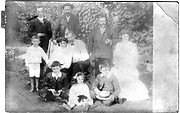 Created by unknown
Donated by Mr. Mark Stone
Created by unknown
Donated by Mr. Mark StoneDated 1915
A photographic paost card sent to Harald Casper in July 1915. Family descendant Mark Stone mentions this "is a rare photo of the family. Harald is certainly in it, also most likely Orla Casper (top left, possibly the only photo of him), then Harald Casper, possibly Hans Casper as one of the older gentlemen, definitely Kathleen Dorothea aged 3 or 4.
The postcard reads:
"Dear Uncle: Hope you admire your good old self. Little en is very happy and well. Loads of love to you all from Loll." Loll probably is Laurel E. Casper, daughter of Hans Christel Casper. Lolly, as she was always lovingly referred to by Kathleen Dorothea Casper was her cousin, was the nick name that everyone used. Kathleen was probably "little en", in the front row, four years old at the time. It would be safe to assume that Hans Christel Casper is in the photo, as he was the head of the household living in Middlesborough, England, managing the shipping business, with his brother Harald who lived in West Hartlepool. Lolly may be in the photo as well, which was greatly faded especially on the right.
More detail » Emil Casper
Emil Casper
A selection of images of Emil Casper, kindly provided by family member Mark Stone.
More detail » Harald Waldemar Casper
Harald Waldemar Casper
Three photographs of Harald Waldemar Casper, in chronological order, the last one taken in 1921.
More detail » Kathleen Dorothea Casper
Kathleen Dorothea Casper
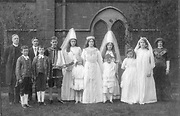 Created by unknown
Donated by Mr. Mark Stone
Created by unknown
Donated by Mr. Mark StoneDated 1910
Kathleen Dorothea Casper (third from the right), at a fancy event, circa.1910. Can anyone identify this event, or any of the other peaople present?
More detail » Silver Wedding Anniversary
Silver Wedding Anniversary
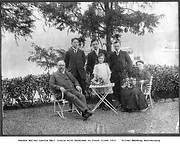 Created by unknown
Donated by Mr. Mark Stone
Created by unknown
Donated by Mr. Mark StoneDated 1910
From Mark Stone (Kathleen Casper's grandson):
Harald Waldemar Casper with his family in West Hartlepool. Standing at the back are Walter Mattocks Casper (1895-1986), Laurence Axel Herbert Casper (1892-1956), and Emil Andreas (Bill) Casper (1889–1974). Seated at the front are Harald Waldemar Casper and Lizzie Casper (nee Mattocks - Harald's wife). The young girl is Kathleen Dorothea Casper (1902-1994).
Missing from this family photograph is Mark Harald Casper (1889-1908(, who died during the great influenza epidemic.
More detail » The Cedars
The Cedars
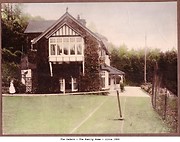 Created by unknown
Donated by Mr. Mark Stone
Created by unknown
Donated by Mr. Mark StoneDated 1910
The Casper's family home, 'The Cedars', circa 1910.
More detail »




